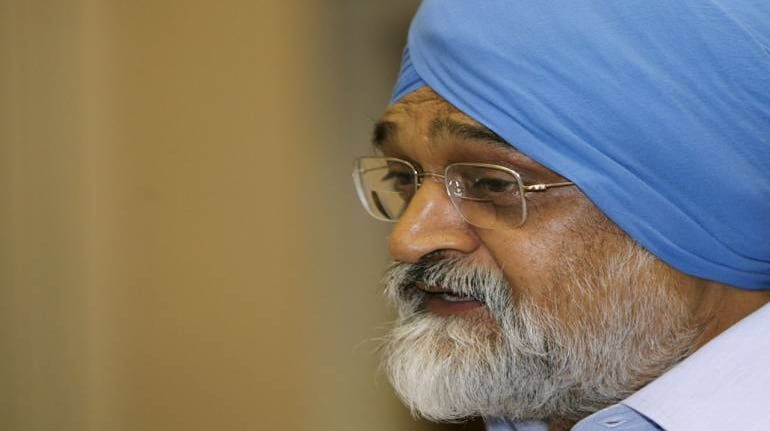



Classical liberal economist Prof B.R. Shenoy (1905-1978), who was opposed to the permit-licence Raj that hindered free enterprise in post-Independence India, set up the Economics Research Centre (ERC) in Mangalore in 1967.
Each year, the ERC invites a prominent economist to deliver the BR Shenoy Memorial Lecture. This year, they paired up with the Delhi-based Centre for Civil Society (CCS) to host the event. Former Planning Commission Deputy Chairman Montek Singh Ahluwalia delivered the 2021 lecture virtually on December 3. This feels especially significant as India observes 30 years since liberalisation, which set off a spate of economic reforms.
Watch: Montek Singh Ahluwalia on why the 1991 reforms were a watershed moment for India's economy
Here are some highlights from the lecture, titled “Lessons from 1991 to 2021: New Economic Reforms for Renewing India”, and Ahluwalia's conversation with Kumar Anand, a Delhi-based economist who is on ERC’s board of trustees:
1. Prof. Shenoy’s legacy as a forerunner to the reforms of 1991 needs to be studied further.
Ahluwalia said that Prof. B.R. Shenoy was the first Indian economist to be published in an international journal way back in 1931, when he critiqued John Maynard Keynes’ A Treatise on Money. He was not taken seriously because post-Independence India was in the grips of a mindset that favoured Soviet-style planning as a strategy for rapid growth. Prof. Shenoy made recommendations for the Second Five-Year Plan but they were not heeded.
Also read: Writing history: 30 years on, a former Moscow correspondent reflects on the end of the USSR
2. Governments must constantly examine whether they are meeting their targets.
Ahluwalia said, “We must keep subjecting our performance to close scrutiny and review our systems.” He noted that if the government had been more self-critical and listened to Prof. Shenoy, India would have gotten on to the path of liberalization earlier. According to him, “India didn’t do so badly in the 1950s and 1960s” but after growth started deteriorating, “it should have been logical to revisit Shenoy’s recommendations and accept that maybe he was right”.
3. Bureaucratic controls jeopardize growth; the government must loosen its grip.
Ahluwalia said that Prof. Shenoy was not in favour of expanding the public sector; he advocated for decreasing controls as he saw them reduce efficiency and increase corruption. Ahluwalia spoke about creating a sophisticated regulatory structure so that disciplining the private sector is not about subjecting it to bureaucratic controls but reducing monopolies and encouraging competition. He warned against protectionism, advocating that “Atmanirbhar Bharat” should focus on “building Indian capabilities” in key areas such as pharmaceuticals and renewable energy but not close down opportunities for foreign direct investment.
4. The private sector and the public sector have their roles cut out in the economy.
Ahluwalia said, “The private sector offers a degree of flexibility that the public sector cannot match. I am not saying that there is no role for the government. It must expand its role in providing access to health and education, especially for those who cannot afford them but still deserve good quality services. This needs to happen especially in rural areas.”
He affirmed his support for private universities, with a system of scholarships that fund students who cannot afford high fees. According to him, private universities also create opportunities for privileged Indians to stay and work in India instead of going abroad.
5. India needs agricultural reforms that involve farmers in a consultative process.
Ahluwalia emphasized the need for reforms in India’s agricultural sector with greater “room for consultation” to build trust between farmers and the government. He recalled that Prof. B. R. Shenoy was against having a Minimum Support Price (MSP). Disagreeing with this proposal, he said, “The questions that we need to ask are: What is the right MSP? Will we have it for every crop? We must encourage dissent, and discuss opposing viewpoints.”
Incidentally, Prof. B. R. Shenoy, too, encouraged dissent. Elaborating on his contributions, Lakshmi Sampath Goyal, CEO of CCS, spoke to Moneycontrol about his “Note of Dissent on the Memorandum of the Panel of Economists” as a member of the Planning Commission in 1955. She called Prof. Shenoy “a lone voice” against centralized planning and recalled that economist Milton Friedman had once described Prof. Shenoy as “a prophet without honour in his own country.”
Prof. B.R. Shenoy's son, Subodh Shenoy, a Hyderabad-based scientist, who is on ERC’s board of trustees, said: “The success of any reform depends on policy details and policy sequencing. No matter how good an idea is, it falls flat if it isn’t implemented properly. Mr Ahluwalia did much of the backstage policy work required to pave the way for India’s economic reforms in 1991. We invited him to speak about the unfinished business of the nation and what India must do now to maintain our growth trajectory.”
Discover the latest Business News, Sensex, and Nifty updates. Obtain Personal Finance insights, tax queries, and expert opinions on Moneycontrol or download the Moneycontrol App to stay updated!
Find the best of Al News in one place, specially curated for you every weekend.
Stay on top of the latest tech trends and biggest startup news.